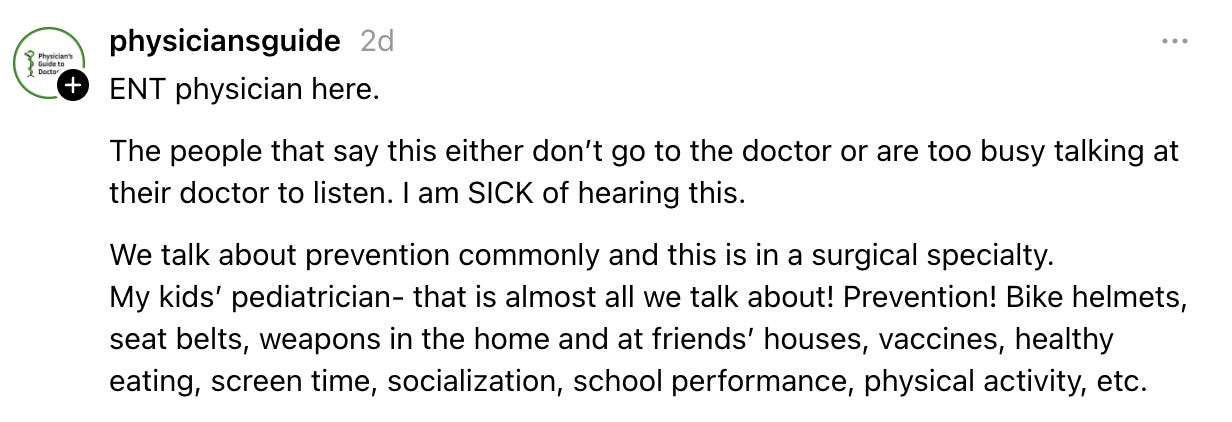Casey Means recently appeared alongside her brother, Calley, on Tucker Carlson’s podcast. The Stanford-trained physician left medicine during her fifth year of surgical residency because, according to her, the medical system doesn’t treat “the whole person.”
Casey, who now runs a continuous glucose monitoring subscription service marketed to biohackers and optimizers (evidence is scant to non-existent in their utility for non-diabetics), and Calley, who runs a company that lets people use HSA and FSA accounts to buy things like supplements and ice baths under the guise of evidence-based medicine, have vested interests in criticizing modern medicine—which they did, repeatedly, for two hours and 20 minutes on Carlson.
Not that the system isn’t problematic (more on that below). One claim that comes up repeatedly, during this podcast and from many others in wellness and biohacking spaces, is that trained healthcare professionals aren’t versed in preventive medicine and habits. So I put forward the following question on Threads.
I also shared the query on Instagram, where 100+ replies rolled in. Quite a few doctors and healthcare professionals noted the constraints of our for-profit healthcare system, something most of us experience far too often. This is a real problem.
But another problem is people selling wellness products and services under the assumption that doctors aren’t trained in preventive medicine, which is a bogus claim; below are a few of my favorite replies.
Out of curiosity, I looked into Stanford’s physician curriculum, which Casey would have had to gone through in order to receive her degree. This is the preclinical list of topics she would have had to studied—and she did 4+ years of residency, but I’ll limit it to the first two years.
Basic Sciences
Anatomy
Histology
Biochemistry
Neurobiology
Biostatistics and Epidemiology
Genetics
Immunology
Molecular Biology
Physiology
Hematology
Medical Microbiology
Pathology
Pharmacology
Clinical Foundations
Physicians and Patients course (medical interviewing)
Physical examination skills
Basic Cardiac Life Support training
Neurology examination
Psychiatry and behavioral sciences
Additional Components
Nutrition Principles (web-based self-study course)
Computer skills competency
Sadly, the idea that medical training doesn’t address the “whole person” plays well when you’re selling a wellness-based subscription service, or promoting a reductive popular science book you co-wrote with your brother about how metabolic issues are the “root” of most diseases.
Biology is complex. Medicine is complex. The “root” of many diseases is often multifactorial. Rarely is an illness genetic alone, for example; environmental factors play an essential role in many diseases. The problem is that public health measures and discussions of the social determinants of health aren’t monetizable.
For those selling untested and unregulated products, policy discussions distract from marketable binaries: Doctors aren’t trained in prevention! My book discusses the underlying factors of disease, which doctors never address!
Evidence-based medicine addresses prevention as well as the “whole person.” The system is the problem, as I’ve again experienced writing this with my second case of Covid.
Keep reading with a 7-day free trial
Subscribe to re:frame to keep reading this post and get 7 days of free access to the full post archives.











